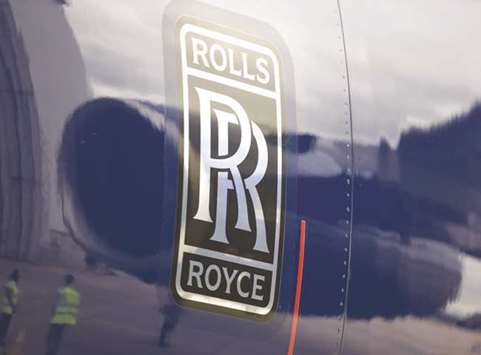Rolls-Royce Holdings Plc surged the most in 20 months after the aero-engine maker ended years of earnings declines and chief executive officer Warren East said he’d double down on management job cuts.
The shares jumped as London-based Rolls-Royce announced a 25% increase in annual profit yesterday, beating estimates, and East revealed that he’d hired New York turnaround firm Alvarez & Marsal to help develop a “considerably simplified staff structure.”
Shares in Rolls-Royce gained 13% to 939 pence yesterday, their highest level since November.
East has already eliminated around 600 senior managers, as well as thousands of workers at Rolls’s main aerospace business and in its marine arm, which may be sold. While the measures are boosting margins, the CEO — who took over in 2015 — has expressed frustration at the slow pace of change, compounded by performance issues on key engine programmes.
“The reality is that there is more simplification that we need to do to make ourselves truly competitive,” East said on a conference call.
“We are embarking on a more fundamental restructuring program with a refreshed leadership team and an improved market environment.”
East said the latest restructuring effort will eliminate remaining duplication within management. He declined to say how many jobs will be affected, though the focus will be on white-collar staff rather than engineers and technicians.
Bringing in Alvarez & Marsal is a bold move, with the firm having built its reputation by advising on the wholesale restructuring and bankruptcies of companies including Lehman Brothers. Founded by Tony Alvarez and Bryan Marsal in 1983, the company says on its website that it has a reputation for “asking tough questions” and “getting our hands dirty.”
Rolls-Royce’s underlying pretax profit surged to £1.07bn ($1.5bn) in 2017, according to a statement, easily beating the £889mn average prediction of 11 analysts, while free cash flow more than doubled.
The strong performance of the Germany-based power-systems arm, buoyed by sales to the construction and agriculture industries, helped mask the impact of operational problems with engines built for two marquee jetliners.
In particular, the Trent 1000 that powers Boeing Co’s 787 Dreamliner and the Trent 900, which is used on the Airbus SE A380 superjumbo, have experienced “durability issues” with a small number of parts.
In some cases the problems have required turbines to be removed for repairs, leading to disruption for customers and a £170mn hit on cash flow.
The cash impact could double this year as maintenance activity peaks, though some parts are having to be redesigned and work won’t be completed until 2022.
Those costs are including in the current outlook and Rolls still expects to achieve a target of posting £1bn in free cash flow by 2020.

Rolls-Royce’s underlying pretax profit surged to u00a31.07bn ($1.5bn) in 2017, according to a statement, easily beating the u00a3889mn average prediction of 11 analysts.
